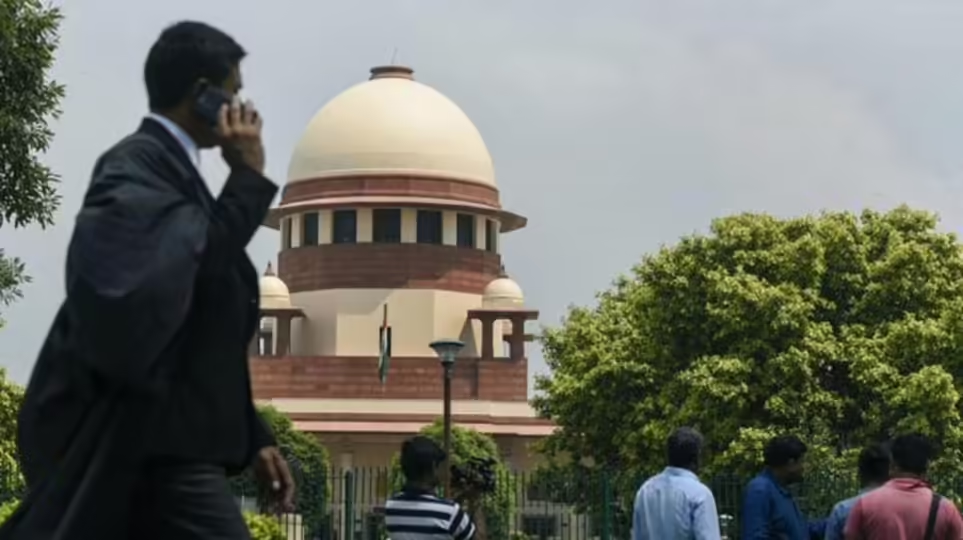Supreme Court to Revisit Pegasus Surveillance Allegations on April 22
Fri, 7 Mar 2025

The Pegasus spyware controversy, which has sparked extensive debate over privacy and surveillance in India, is set to return to the judicial spotlight. The Supreme Court of India has scheduled a hearing for April 22 to address a series of petitions concerning allegations that the Pegasus spyware was utilized to monitor a range of individuals, including politicians, activists, journalists, and businesspersons. This development comes after a period of relative inactivity in the case since August 2022. The decision to reconvene on this matter was made by a bench comprising Justices Surya Kant and N. Kotiswar Singh. The bench acknowledged that multiple petitions related to the Pegasus allegations were pending and had not been collectively listed for consideration. During the proceedings, Solicitor General Tushar Mehta, representing the Union government, and senior counsel Kapil Sibal, appearing for journalist Paranjoy Guha Thakurta, concurred on the necessity of consolidating these petitions. They agreed that a comprehensive hearing should be scheduled to address all related matters simultaneously, leading to the selection of the April 22 date. The origins of this controversy trace back to July 2021, when an international consortium of media organizations and investigative journalists reported that Pegasus spyware had been used to target approximately 50,000 phone numbers globally. Among these were numbers belonging to Indian citizens, including prominent figures such as Congress leader Rahul Gandhi, political strategist Prashant Kishor, former Election Commissioner Ashok Lavasa, and Union ministers Prahlad Patel and Ashwini Vaishnaw. These revelations raised significant concerns about unauthorized surveillance and the potential infringement on individual privacy rights. In response to these allegations, the Supreme Court intervened in October 2021, appointing a panel of experts to investigate the matter. The committee conducted a forensic analysis of 29 mobile devices that were voluntarily submitted for examination. In its findings, submitted in August 2022, the committee reported that it was unable to conclusively determine whether Pegasus spyware had been used on these devices. While traces of malware were found in five phones, there was no definitive proof linking it to Pegasus. A notable aspect of the committee's report was the Union government's lack of cooperation with the investigation, which impeded a more thorough examination of the allegations. The Pegasus spyware, developed by the Israeli cyber-intelligence firm NSO Group, is a sophisticated tool capable of remotely infiltrating mobile devices. Once installed, it can access calls, messages, photos, and even activate the device's microphone or camera without the user's knowledge. The NSO Group has consistently maintained that Pegasus is sold exclusively to government agencies for legitimate counterterrorism and law enforcement purposes. However, the reported misuse of the spyware to monitor individuals unrelated to criminal activities has sparked global concerns about privacy violations and the potential for abuse of surveillance technologies. The upcoming hearing on April 22 presents an opportunity for the Supreme Court to delve deeper into these allegations and address the broader implications for privacy rights and governmental surveillance practices in India. The court's examination will likely focus on the extent of unauthorized surveillance, the entities responsible for deploying the spyware, and the measures needed to prevent such incidents in the future. Additionally, the court may consider the recommendations made by the expert committee, which emphasized the need for new laws and safeguards to prevent unlawful surveillance and cyber intrusions. The outcome of this hearing holds significant implications for the balance between national security interests and individual privacy rights in India. A thorough judicial review could lead to the establishment of clearer guidelines and oversight mechanisms governing the use of surveillance technologies by state agencies. Such measures would aim to protect citizens' privacy while enabling the state to address legitimate security concerns effectively. As the date approaches, various stakeholders, including civil society organizations, legal experts, and the general public, will be closely monitoring the proceedings. The hearing represents a critical juncture in India's ongoing discourse on privacy, surveillance, and the rule of law, with the potential to set precedents that could shape the country's legal and ethical landscape in the digital age.
